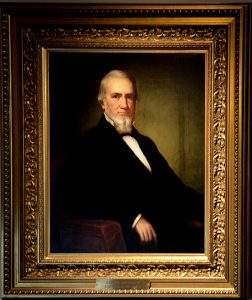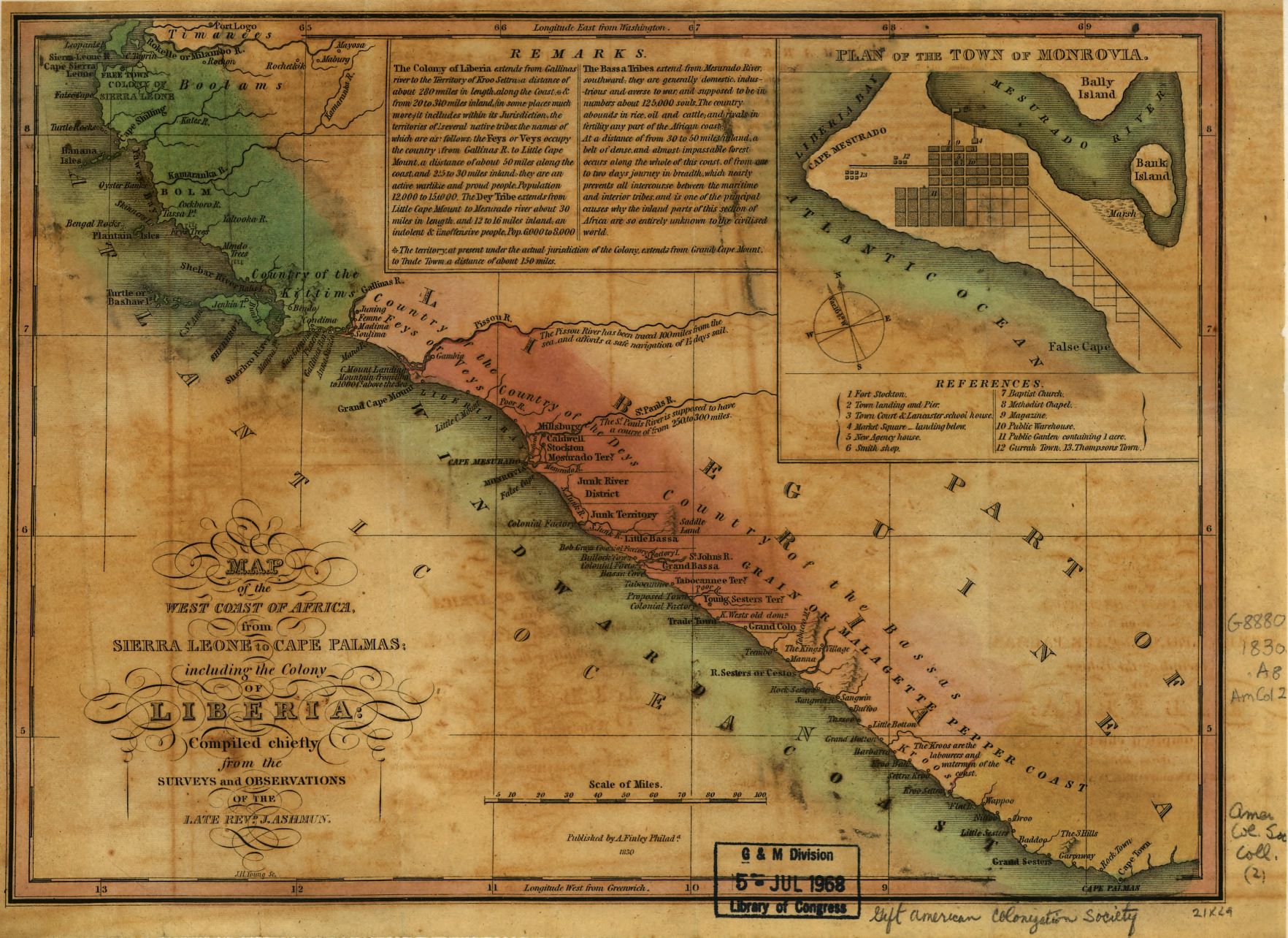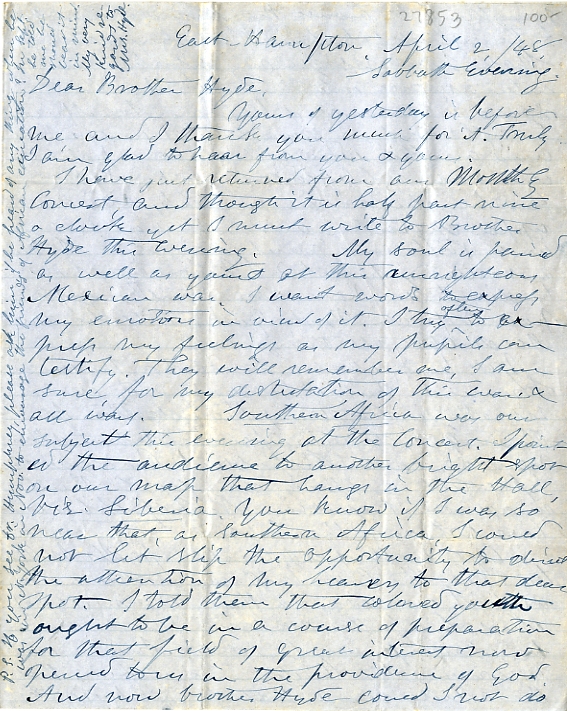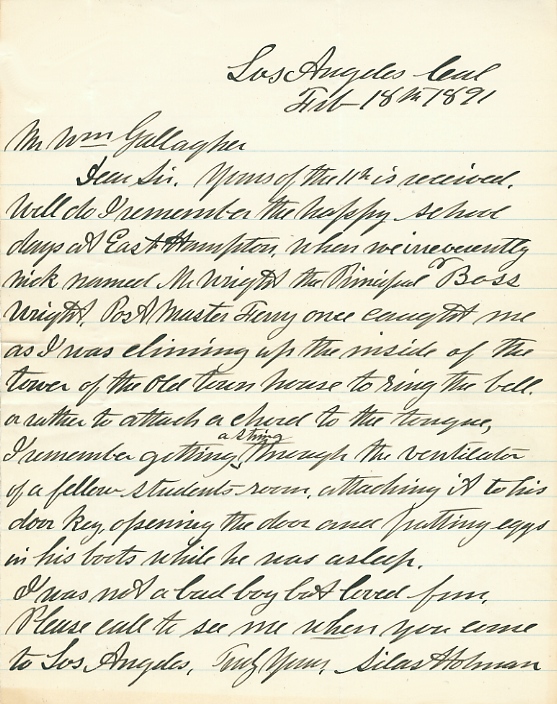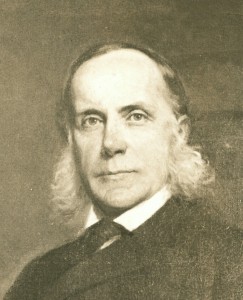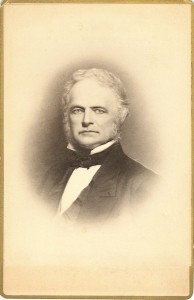
Williston Seminary’s first Principal, Luther Wright (served 1841-1849), was reputedly a great believer in the order of things. Early on, he had printed placards, posted in every student room, which quickly became known as the “23 commandments.” This set of regulations was considered so comprehensive, of such educational and moral impact, that they remained on the walls, contents unaltered, five Principals and four decades later. Professor Henry Alvord, who had strong opinions about most things, had cause to comment in the 1880s.
In his History of Williston Seminary (1917) Principal Joseph Henry Sawyer (taught from 1866; Principal, 1896-1919) commented that “they are rules which all schools must have,” but even Sawyer, a master of tact, marveled at the level of what adolescent boys must have considered petty detail. One of Wright’s placards survives to this day: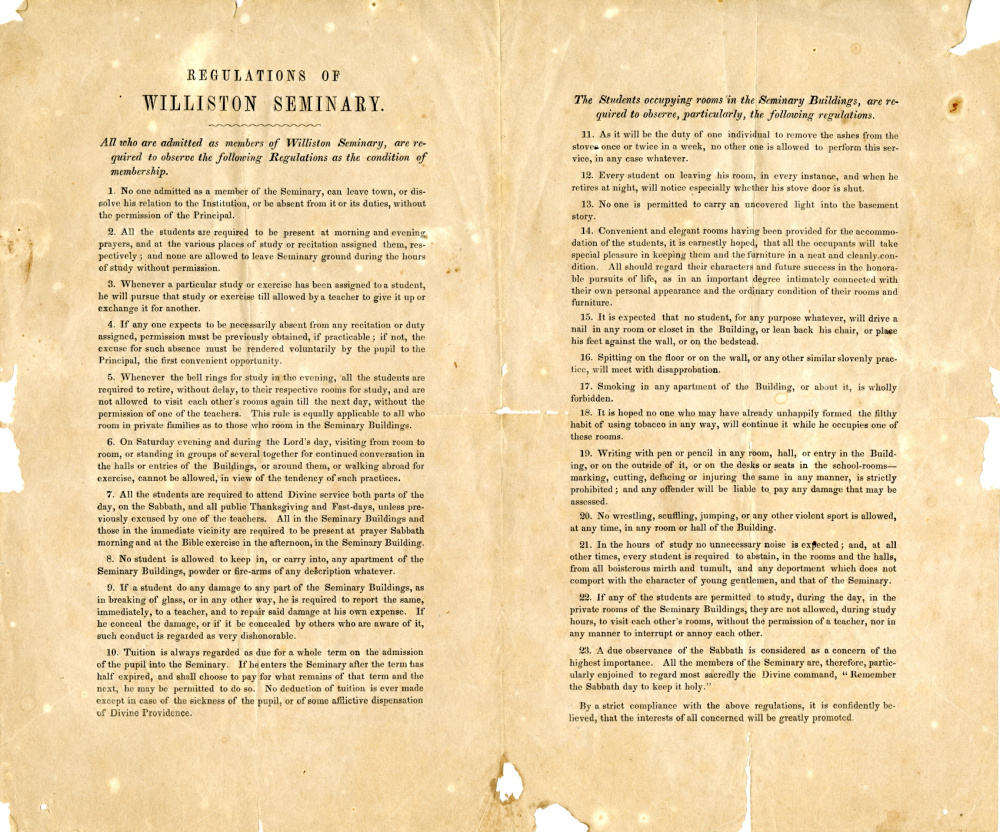 Here are the two sides, in more readable detail. (Click on images to enlarge.)
Here are the two sides, in more readable detail. (Click on images to enlarge.)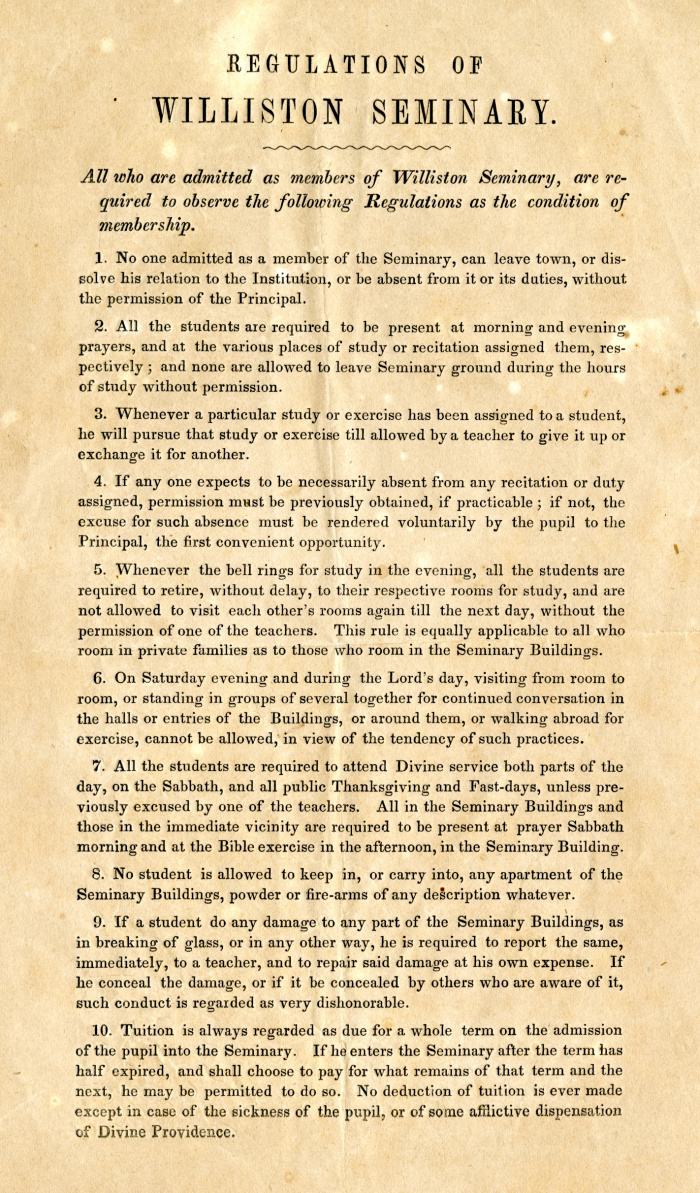 One can imagine the students’ attitude toward the prohibition of gathering in groups on Saturday night, or might wonder whether most sixteen-year-olds could sit without tipping their chairs.
One can imagine the students’ attitude toward the prohibition of gathering in groups on Saturday night, or might wonder whether most sixteen-year-olds could sit without tipping their chairs.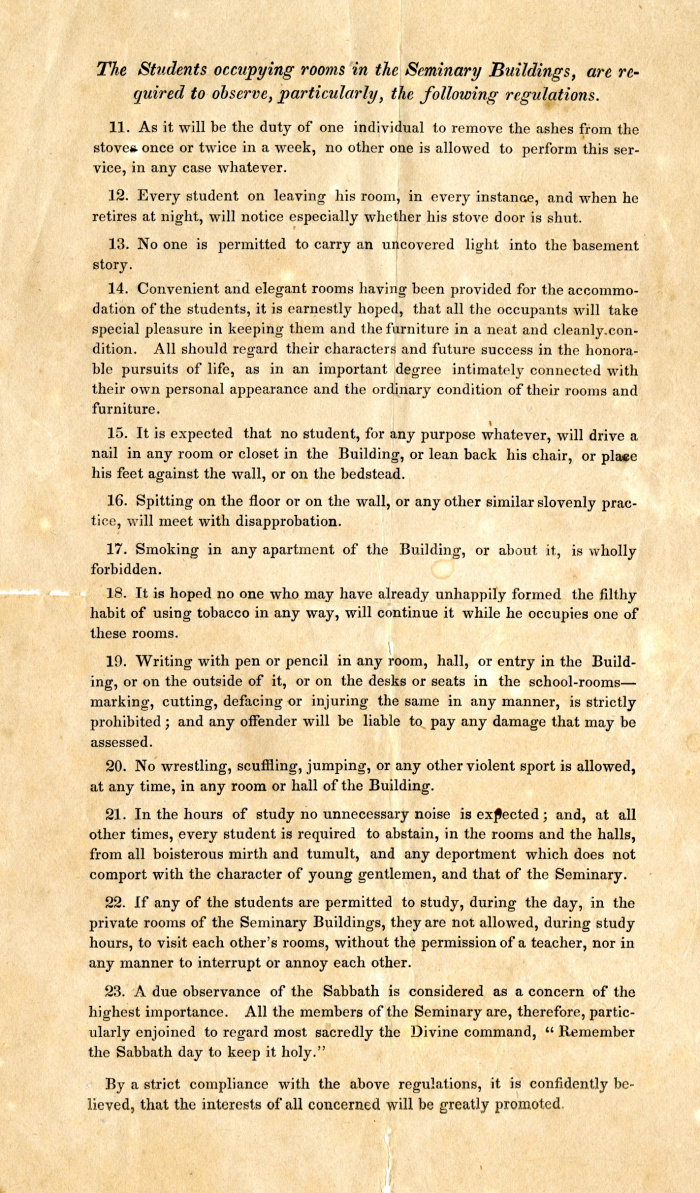 It should be no surprise, then, that by 1846 Mr. Wright’s “young gentlemen” had produced a wickedly funny parody of the school catalogue. (This, incidentally, gives us a “no later than” date for the Regulations placard.) Not only did the parody capture and inflate the moralizing and rather effusive marketingese of its model, but the typography and layout were such that the fake could easily have been mistaken for the real thing.
It should be no surprise, then, that by 1846 Mr. Wright’s “young gentlemen” had produced a wickedly funny parody of the school catalogue. (This, incidentally, gives us a “no later than” date for the Regulations placard.) Not only did the parody capture and inflate the moralizing and rather effusive marketingese of its model, but the typography and layout were such that the fake could easily have been mistaken for the real thing.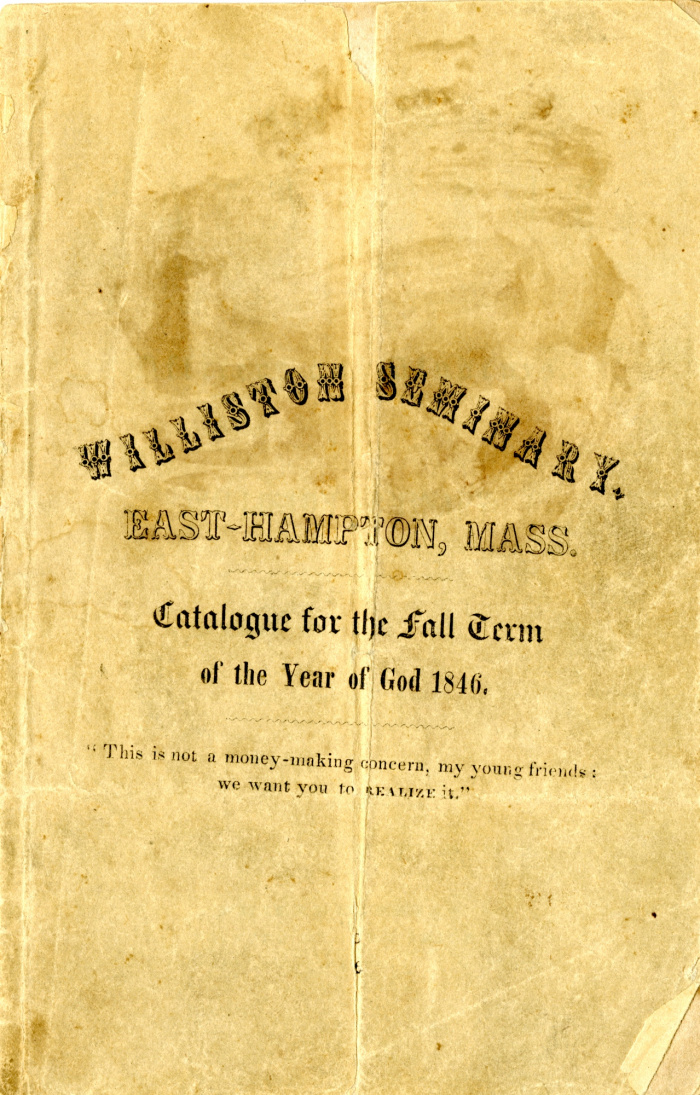 Wright’s 23 commandments had expanded to 25. Together, they suggest aspects of day-to-day Williston that he probably preferred had gone unrecorded.
Wright’s 23 commandments had expanded to 25. Together, they suggest aspects of day-to-day Williston that he probably preferred had gone unrecorded.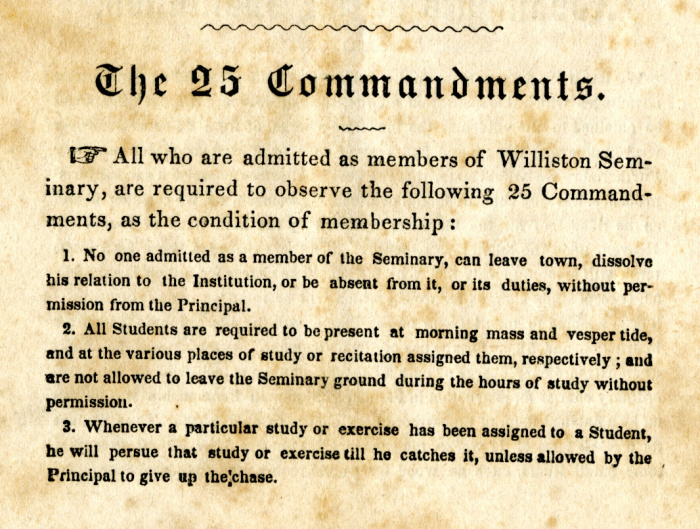
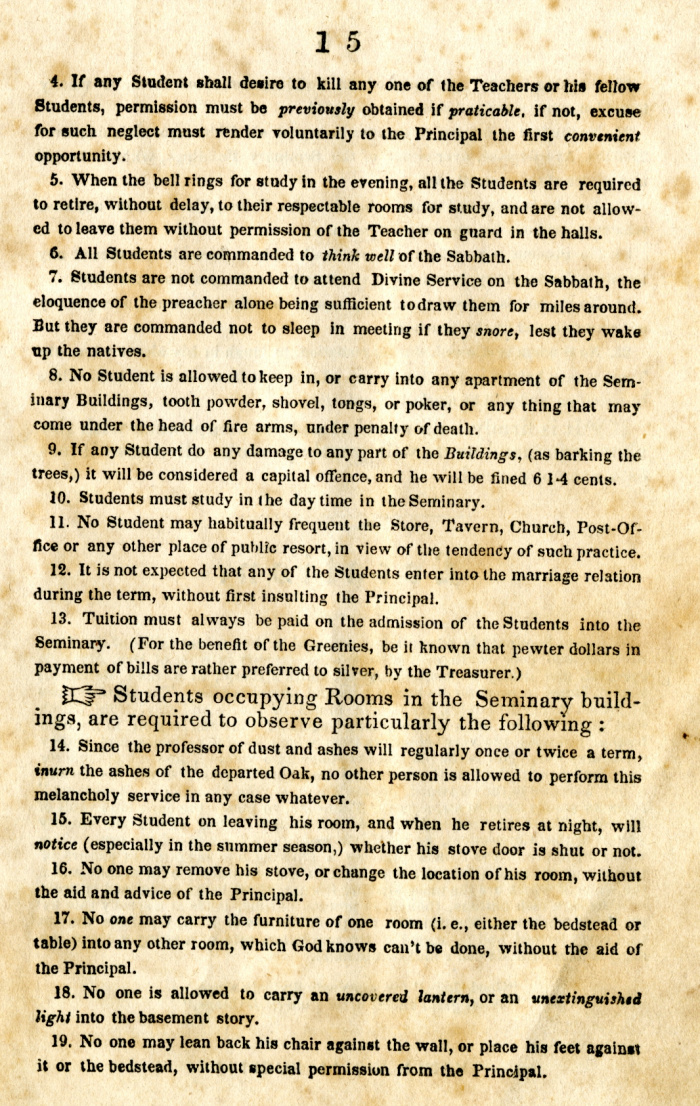
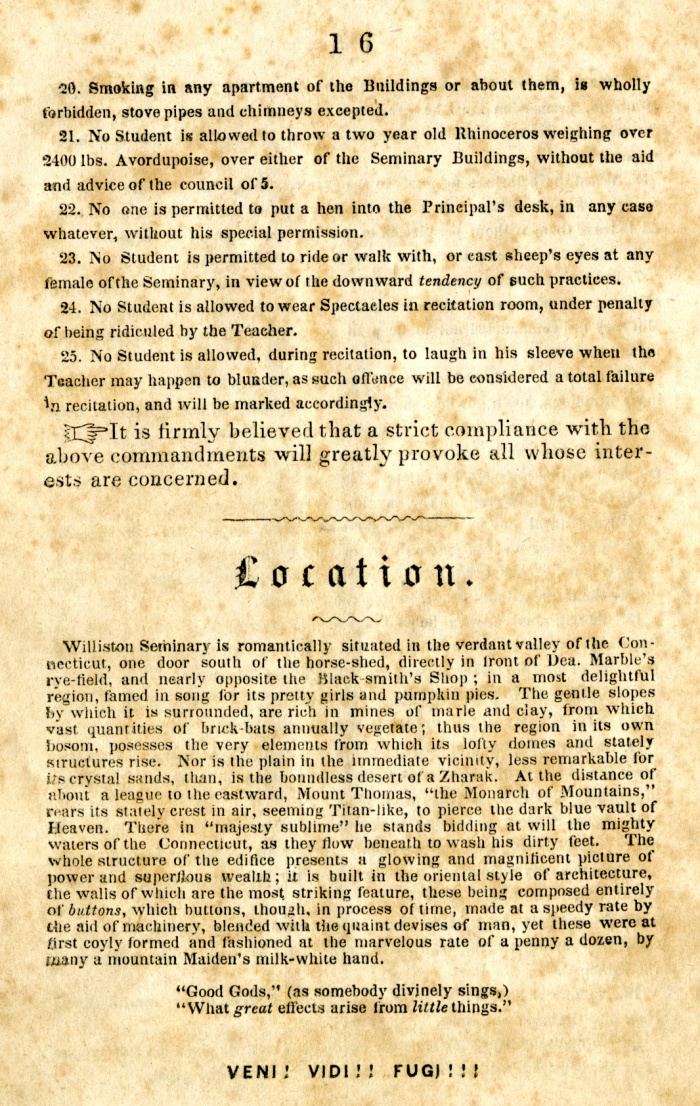 For further exploration of administrative attempts to regulate student lives, please see “Thou shalt not . . .” (Because, boys and girls, it’s good for you, and you’ll thank us later.)
For further exploration of administrative attempts to regulate student lives, please see “Thou shalt not . . .” (Because, boys and girls, it’s good for you, and you’ll thank us later.)



